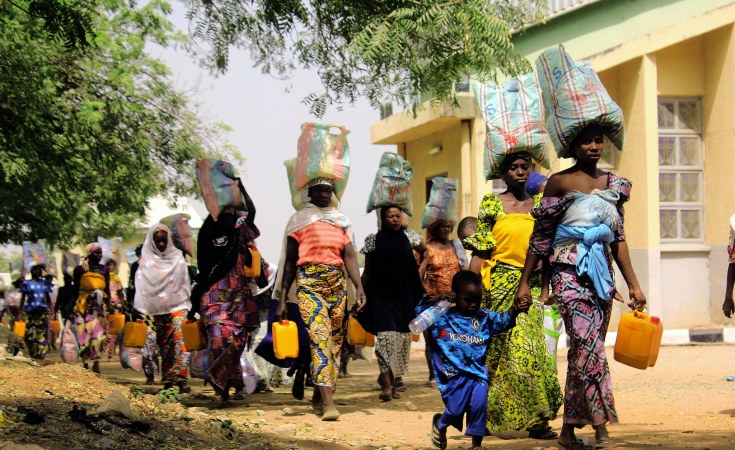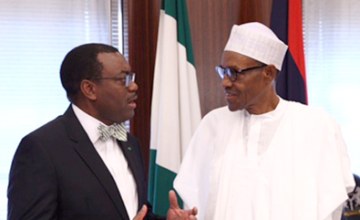The Board of Directors of the African Development Bank Group (AfDB), has approved a financing package comprising USD 150 million ADB Loan, USD 100 ADF Loan and the EUR 5 million RWSSI Grant Facility, to finance the Inclusive Basic Service Delivery and Livelihood Empowerment Integrated Programme (IBSDLEIP), in support of operationalizing the "Buhari Plan" for Emergency Transition, Recovery and Peacebuilding for North East states in Nigeria.
The IBSDLEIP seeks to curb fragility aggravated by the Boko Haram insurgency with the goal of contributing to reduced poverty and vulnerability in Nigeria. Specifically, the Bank's support will help improve the quality of life by increasing access of the poor and vulnerable to basic social services in water, sanitation, hygiene, health and education; livelihood opportunities; food security and strengthened safety net systems in affected states in the North East.
Economic recovery interventions is expected to empower youth and women through entrepreneurship, employment generation and tailored skills for labour market and livelihoods for vulnerable households. Over 9,000 Internally Displace Persons (IDPs) and heads of vulnerable households will receive direct assistance for their economic reintegration and livelihoods; 2032 SSMEs (79% women) will be supported to develop and enhance their businesses; 2,900 construction artisans and mechanics working in the informal sector will also receive support to enhance quality and productivity and 2,000 unskilled youth will be trained in economic skills for employment and job creation. The programme is expected to generate 7,740 direct permanent and 4,700 temporary jobs. The five states that form this program includes Borno, Adamawa, Bauchi, Gombe and Taraba.
The Bank's support will reach over 10 million affected people including about 2 million IDPs of which 53 % are women, and 57 % are children with restoration of effective and efficient basic service delivery including interventions in water and sanitation, health and nutrition and education.
The Bank's approval marks a "building better" approach and underpins efforts aimed at tackling key causal push factors of the Boko Haram insurgency to help curtail the risk of fueling further escalations and terrorism. These efforts is also in alignment with interventions by Development Partners within the Recovery and Peace Building Framework (World Bank, IsDB, EU, DFID, Bill and Melinda Gates Foundation etc.) which seeks to support the implementation of the "Buhari Plan".
The Bank remains a committed partner to Nigeria socio economic efforts and is among early partners to contribute to operationalizing the Buhari Plan.



